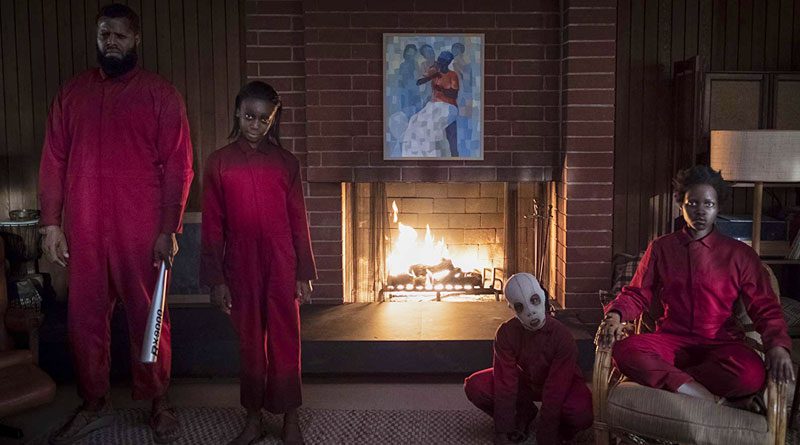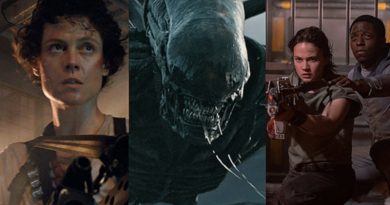Us (2019) Review
In his new movie Us, acclaimed writer-director Jordan Peele has once again chosen to blend horror tropes, comedy and social commentary that made his impressive directorial debut in 2017’s Get Out such a critical darling and a box-office phenomenon.
Here’s what you need to know about Us: More than 30 years after a traumatic childhood experience that forever scarred her memory, the now-adult Adelaide (Lupita Nyong’o) is trying to live a normal family life with her husband Gabe (Winston Duke) and their two kids (Shahadi Wright Joseph’s Zora and Evan Alex’s Jason).
Then, one night while having a family getaway at their beach house, they encounter a family of four dressed in all-red jumpsuits and each armed with a pair of golden scissors. If that’s not enough, these four mysterious peoples even look exactly like doppelgängers of themselves. What follows next is a series of malevolent moments that you just have to see it for yourself.
Unlike the more resonant Get Out that deals with topical subject matters on race relations and prejudice, Peele took a few steps further by broadening his artistic canvas in Us. He clearly has a lot of things to say here, infusing his latest horror movie with more sociopolitical allegory than he did the first time around. Casual viewers might find Us a frustrating experience to watch for since Peele’s metaphor-heavy screenplay offers no easy answer or even something that can be simply put together into a coherent whole. Instead, Us is the kind of movie that wants us to debate, dissect and interpret all the hidden meaning displayed over the course of its nearly two-hour running time.
And while it was a bold and ambitious move, there’s a nagging feeling that Peele does try too hard in Us. Certain scenes, particularly during the climactic finale feel clunky. It doesn’t help that the doppelgängers dubbed as “The Tethered” are depicted more like an indecipherable mysterious figure. Even the inclusion of their backstory later in the movie is more heavy-handed and murky.

Still, it’s hard to deny that Peele knows how to craft a genuinely creepy horror movie. From the opening prologue at the Santa Cruz amusement park set in 1986 alone, he already firmly established a foreboding sense of dread detailing on young Adelaide’s (Madison Curry) nightmarish incident. Then, later in the movie, Peele successfully amps up the tension that pays a distinctive homage to the home-invasion thriller, complete with Mike Gioulakis’ unnerving cinematography and Michael Abel’s eerie music score. There’s even a scene that worth mentioning here — a violent set-piece involving an Alexa-like Ophelia device playing The Beach Boys’ “Good Vibrations” and N.W.A.’s “F**k the Police”. Let’s just say you might not hear those classic songs the same way again after watching the scene.
As proven in Get Out, Peele knows how to make the best use of his cast. After spending years of playing mostly supporting roles since winning an Oscar in 2013’s 12 Years a Slave, it’s nice to see Lupita Nyong’o takes charge in a lead role. It’s the kind of strong, yet emotionally vulnerable performance that has an award-worthy quality. On the flip side, Nyong’o’s portrayal as the doppelgänger Red is creepy as hell — proving the Kenyan-Mexican actress’ impressive acting repertoire in handling two distinctive dual performances. Winston Duke delivers equally solid support as Adelaide’s dorky husband Gabe while Shahadi Wright Joseph and Evan Alex each get to shine in their respective roles as Adelaide’s young children.
While Us doesn’t really reach the height seen in Get Out, Jordan Peele’s second directorial effort remains both thematically and visually intriguing piece of work. That said, it’s far from a sophomore slump and also goes to show that Peele is not a one-trick pony.





